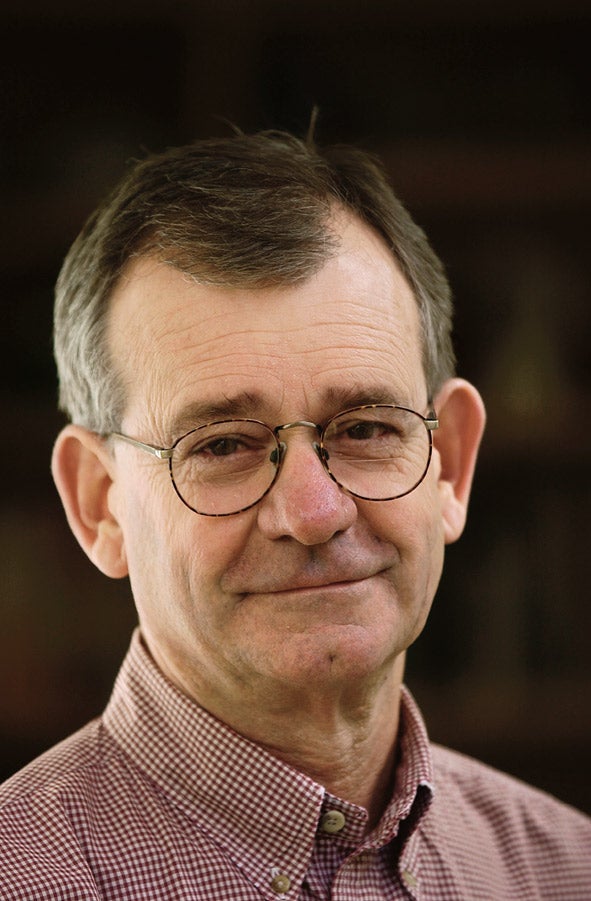When I graduated from Harvard Law School in 1970, my feelings about the place were clear, sharp. It was an interesting place, an important place and a bad place. It did not have the flexibility to allow individuals to express themselves. It did not allow for reciprocity between faculty and students. In short, it really had no desire to be loved, or even to be respected. The big dark institution, symbolized for me by Langdell Hall, only wanted to be feared. It was very successful in inspiring fear and despair, both in the classroom and in the larger world.
My first novel, “The Paper Chase,” portrayed this vision of the institution. Its central character, Professor Kingsfield, on the last day of class, is told by Hart, the student hero, that Kingsfield’s contracts class meant something to Hart, that Kingsfield was very important to him. Finally, the corners of the professor’s lips turn up in a slight smile. “What was your name?” Kingsfield asks, stepping past Hart. You will never be anything more than a number on a seating chart, Kingsfield is saying; despite all your efforts, you mean nothing to me, or to Harvard Law School.
Imperceptibly, over the years, Kingsfield changed. In the six years that “The Paper Chase” was on television–first on CBS, then on PBS, later on Showtime–he grew more complicated. I remember writing the episode “Scavenger Hunt.” It begins with Kingsfield going to incredible lengths to track down the most obscure citations available within the entire university. He will then send his students out on a gigantic scavenger hunt to find these citations, a hunt that has no rules, pitting them against each other in a zero-sum game, in which the person who finds the citations gets an A, and everyone else flunks. (Or does he really have something else on his mind, something more “educational”?) We begin with Kingsfield and his loyal secretary, Mrs. Nottingham, down in a subbasement, looking over uncataloged items by candlelight, while a rotting sewer line leaks on their heads.
What law professor is going to go to those lengths? Well, in fact, none. So, if Kingsfield does this, what does it say about him? It says that he cares. It may not be easy to see that, and he would never admit it, but in some fundamental way, he really cares about teaching, and by implication he also cares for his students.
My own feelings about Harvard Law School changed with Kingsfield’s. Over the years, somehow the good things I experienced at the law school floated to the surface. Now I think about Lon Fuller, who was such a wonderful teacher, and Lloyd Weinreb, who walked through a blizzard to my house for dinner, just because he’d told a student (me) that he would come. And I remember Assistant Dean Stephen Bernardi, going out of his way to find me a clerkship, for no other reason than he wanted to be helpful. And going back to the law school from time to time, I began to see that Dean Clark actually meant business, and was succeeding in making the institution responsible to its students.
Anyway, last year my daughter Meredith was applying to law schools. Somehow, I found myself telling her that the place she needed to go was Harvard Law School. I found myself extolling the benefits of the place. I explained that she needed “the real law school experience,” not some watered-down version offered out here on the West Coast, in some mock mission-style law school where they sip caffe latte on a slate terrazzo in the hot sun in the middle of January. None of that for a real law student, I told her. She needed to go to “the mother of all law schools,” I explained, where the “extremely effective” case method had been invented and “honed to a razor’s edge.”
Then it was March 8, 2002, Meredith’s birthday. I was sitting in my office, getting ready to call her, desperately hoping that in fact she would be admitted to HLS. My phone rang. It was the Harvard Law School calling. Not to ask for donations. Calling just to say that Meredith had been accepted, calling me because the law school was now a caring, loving place that considered the feelings of its old graduates, the kind of place that wants to relieve the tension of its old alums, the kind of place that any father would be happy to have his daughter attend.
The 30th anniversary edition of “The Paper Chase,” by John Jay Osborn Jr. ’70 of San Francisco, was published in November. Meredith Osborn plans to begin her first year at Harvard Law School in September.
